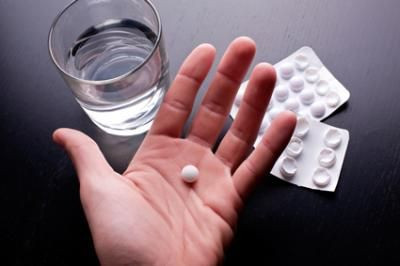Herbal Supplements, Drugs Shown Ineffective In Slowing Mental Decline

However powerful the force of wishful thinking, heath supplements such as fish oils and the memory-juicing herb gingko biloba fail to prevent aging-related cognitive decline, new research shows.
But researchers did find evidence that simple mental exercises might help slow the downhill roll. Dr. Raza Naqvi, of the University of Toronto, led a review of 32 clinical trials with more than 25,000 patients, dating back to the Sixties.
"This review provides some evidence to help clinicians and their patients address what strategies might prevent cognitive decline," said Dr. Raza Naqvi, given that one-quarter of people over age 70 experience mild cognitive decline.
Though previous study showed boosted blood flow to the brain from omega-3 oil and gingko, the researchers found no strong effect in their meta-study. Also, vitamin B6 (whatever else its merits) was found to be of no help in enhancing brain function.
The researchers further found no strong evidence for drugs such as cholinesterase inhibitors developed to improve the agency of acetylcholine, a chemical messenger assisting with memory, thought and judgment. Some studies even suggested that supplementation with an oestrogen in hormone replacement therapy may speed cognitive decline in women. The review counters previous research suggesting that hormone replacement therapy preserved the gene APOE-34, which was believed to decrease the chances of developing dementia.
The value of physical exercise, such as strength-training, on preserving mental acuity was also found to be weakly supported by evidence. Among behaviors linked to slowing cognitive decline, mental exercises were found to be efficacious. Such exercises included computerized brain-training games or intensive interpersonal cognitive training in memory, reasoning or speed of processing. Another recent study from the Mayo Clinic, moreover, showed cognitive benefit from a combination of mental and physical exercise.
Naqvi suggested that further studies should attempt to quantify the effect of mental exercises on preserving mental abilities or, if you like, preventing mental decline. "We encourage researchers to consider easily accessible tools such as crossword puzzles and sudoko, that have not been rigorously studied," he said.
"The studies in this review that assessed cognitive exercises used exercises that were both labor and resource-intensive and thus may not be applicable to most of our patients."
However, experts warned Alzheimer's patients to continue taking their medications.
"While it would be great to think that doing a crossword or playing Sudoku could help stave off cognitive decline, there's sadly limited evidence to support this," said Jess Smith, of the Alzheimer's Society in the United Kingdom.
"Every day we hear about new ideas to prevent or deal with dementia but the only proven treatments are the four drugs currently available on prescription, including donepezil, which can slow down symptoms of Alzheimer's," Smith said. "There are currently no medications available that can prevent people from developing the condition."
Until further notice, Smith recommended a balanced diet, exercise, and the maintenance of healthy weight and blood pressure to retain cognitive health.



























